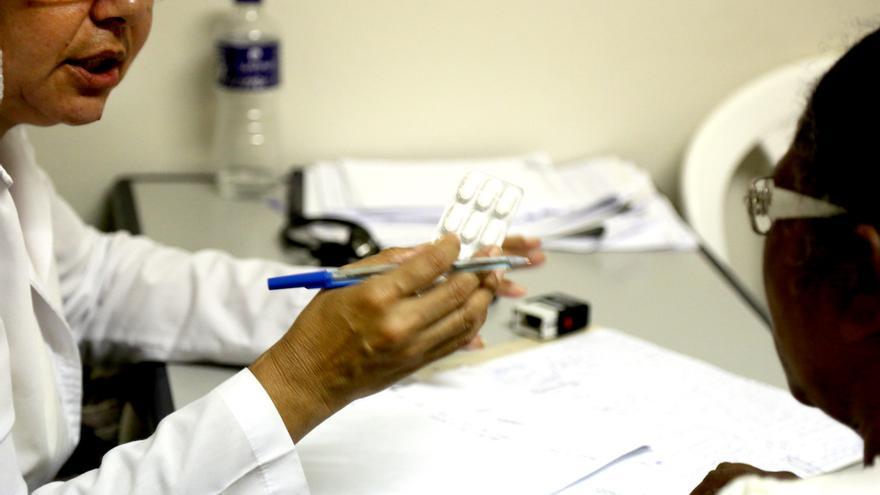
![]() 14ymedio, Havana, 18 July 2019 — On Tuesday the French parliament approved on a project to reform the health system that includes a small article that will benefit Cuba. Pressure from the senators for Guadeloupe, Dominique Théophile, and Martinique, Catherine Conconne, achieved a provision that provides that the territories of the French Antilles can hire doctors and health personnel from outside the European Union, a rule designed to facilitate the recruitment of the Cuban specialists, as its promoters have expressly indicated.
14ymedio, Havana, 18 July 2019 — On Tuesday the French parliament approved on a project to reform the health system that includes a small article that will benefit Cuba. Pressure from the senators for Guadeloupe, Dominique Théophile, and Martinique, Catherine Conconne, achieved a provision that provides that the territories of the French Antilles can hire doctors and health personnel from outside the European Union, a rule designed to facilitate the recruitment of the Cuban specialists, as its promoters have expressly indicated.
“We are very happy that the wording of this provision allows us to make use of a resource available an hour by plane from our homes, and I am referring to the Cuban doctors. It will soon be possible not to have to wait for more than a year and a half to have an appointment with a cardiologist, an ophthalmologist or even a gynecologist,” said Conconne.
French legislation forbids hiring doctors, dentists, midwives or pharmacists from countries that do not belong to the European Union or the countries with which they have agreements, such as Morocco or Tunisia. The only exception to date was Guyana, which since 2005 had an ordinance that allowed it to hire personnel from other countries on a temporary basis.
hat exemption caused a controversy in February when the president of the French territory in South America, Rodolphe Alexandre, held several meetings with Cuban health authorities to hire a hundred doctors from the island. The idea met with the resistance from the professionals of Guyana, who questioned the technical and linguistic skills of Cubans who have been covering the country’s health needs for the last decade
According to local health authorities, this system “has led to recruitment of a poor quality” and the population has lost confidence in doctors who barely speak French. “We maintain a clear refusal against any massive importation of Cuban doctors; we do not agree with some local elected officials,” they say.
The rule, which will be in effect until 2025 in Guyana, Martinique and Guadeloupe, will also apply in the French department of Saint-Pierre-et-Miquelon, a small archipelago located off the coast of Canada. The local authorities must verify the qualifications of the professionals and validate them, and the Council of the Order of Physicians must validate their registration and verify that the applicant has a sufficient level of French. Finally, during the first year of practice, doctors will have a professional in the field who supervises their work.
The senator for Guadalupe, Dominique Théophile, was also very satisfied with the approval of the article: “Today, thanks to the amendment adopted, with a doubly favorable opinion, from the Government and the Commission, new opportunities are opened for the arrival of Cuban doctors to the French Antilles to fight against medical ’desertification’,” he explained.
According to data from the French National Institute of Statistics, in Paris there are 246 doctors per 100,000 inhabitants, compared to 140 in Guadeloupe and 143 Martinique.
The approval of this rule comes at a time when there are several complaints in the International Criminal Court against the Cuban Government, which is accused of enslaving its doctors. Cuban health professionals serving abroad barely receive between 10% and 25% of the salary paid for their services and the rest goes to the coffers of the State, which has come to realize amounts exceeding 8 billion dollars annually under this concept, which have become the largest source of income for the Cuban Government.
_________________________
The 14ymedio team is committed to serious journalism that reflects the reality of deep Cuba. Thank you for joining us on this long road. We invite you to continue supporting us, but this time by becoming a member of 14ymedio. Together we can continue to transform journalism in Cuba.
